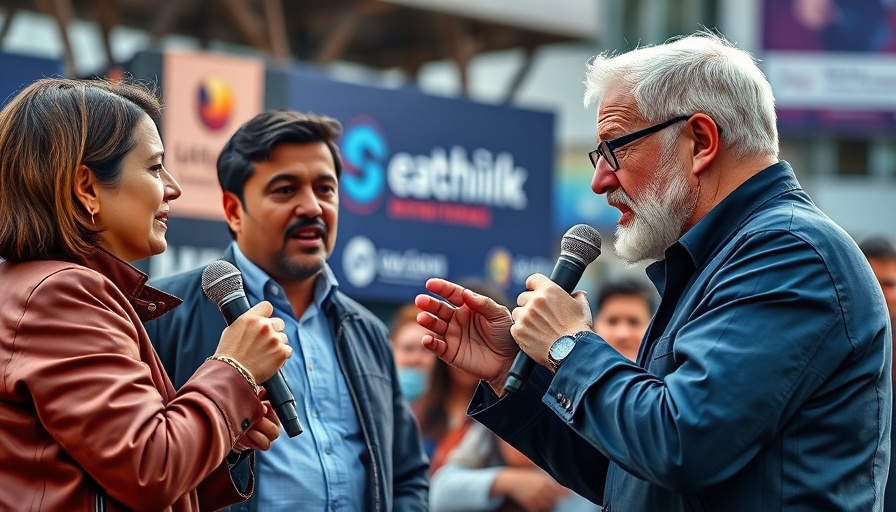
The DEI Debate: A Landscape of Contention
The conversation surrounding Diversity, Equity, and Inclusion (DEI) is drawing sharp lines within our society. While proponents view DEI as a necessary path toward social justice, many conservatives argue that it promotes division instead of unity. This friction strikes at the heart of what it means to live in a democracy, where freedom of belief is fundamental.
Freedom vs. Censorship
At the core of the DEI debate lies a clash between the ideals of freedom and new forms of censorship that some conservatives feel are seeping into everyday life. Figures like Ben Shapiro and Candice Owens often voice concerns that this cultural push may stifle open debate, labeling any dissent as unwelcome. They argue for a return to discussions that respect free speech, propelling our economy and society forward through robust dialogue instead of enforced conformity.
The Economic Implications of DEI
Beyond social concern, DEI programs can have far-reaching implications for business and job creation. While some argue these initiatives help cultivate diverse workplaces and fuel economic growth, others worry that such programs only serve to inflate costs under new regulatory pressures. It leaves business owners contemplating the balance between fulfilling DEI mandates and facing inflationary realities that impact their bottom line.
The Role of Parents and Families in the DEI Conversation
Furthermore, this debate resonates deeply with families. Parents, fearful for their children's futures, see the implications of DEI policies in schools as a direct challenge to traditional values. The worry is that DEI practices may prioritize political correctness over foundational family values, challenging the roles of mothers and fathers in guiding their children through complex societal issues. This leads to passionate discussions in neighborhoods across America.
Understanding Different Perspectives
To navigate this contentious discourse, it is essential to consider diverse viewpoints. Joe Rogan and Steven Crowder, along with many others in conservative circles, engage their audiences by exploring both sides of the DEI argument. This method not only enlightens listeners but encourages them to critically reflect on their own opinions, ultimately fostering a more informed and engaged citizenry.
As debates on DEI continue to evolve, it’s crucial that parents, children, and all citizens remain active in discussions pertaining to our democracy. Understanding the implications of these policies can empower families and communities to influence change, guiding America toward a path of constructive dialogue and mutual respect.
 Add Row
Add Row  Add
Add 




Write A Comment